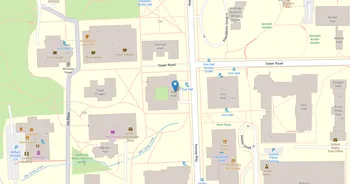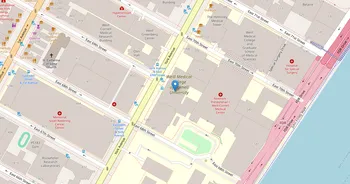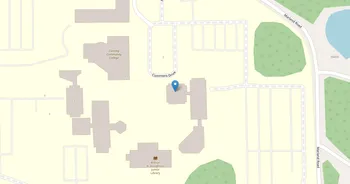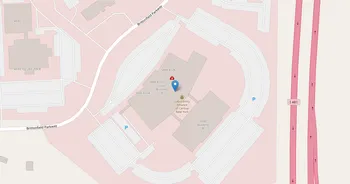The Cooper Union for the Advancement of Science and Art : Overview, Courses, Scholarships & Rankings
About The Cooper Union for the Advancement of Science and Art
Many pivotal American conversations have echoed from its Great Hall, and that spirit of inquiry still shapes daily life here. The Cooper Union is known for studio-based art, design, and architecture alongside rigorous engineering. Students work in light-filled studios, fabrication shops, labs, and galleries, supported by a resourceful library, thoughtful advising, wellness services, and hands-on help when projects get tricky.
Clubs, critiques, pop-up shows, and public talks keep evenings busy, and the end-of-year exhibitions are a city draw. Career prep leans practical: portfolio reviews, mentoring, and proximity to firms, museums, and start-ups feed internships and first gigs. The culture is intense, collaborative, a little stubborn in the best way. And the East Village location means constant access to parks, cafes, and cultural institutions. Notable alumni include Milton Glaser, Daniel Libeskind, Lee Krasner, and Alex Katz.
Key Institutional Details
Contact & Profile
Academic & Institutional
Academic Programs & Fields of Study
The Cooper Union for the Advancement of Science and Art offers 8 degree programs across 4 major academic fields, graduating approximately 277 students annually. The most popular fields by graduate volume are Engineering (5 programs, 169 graduates), Arts (1 programs, 73 graduates), Architecture (1 programs, 28 graduates) and Eng. Technologies (1 programs, 7 graduates). Explore program details, award levels, and graduate demographics below.
Engineering (5 programs, 169 graduates)
Engineering Sciences and Applied Technology Solutions
| Program Name | Graduates | Gender Distribution | Award Levels | CIP Code |
|---|---|---|---|---|
| Mechanical Engineering | 52 |
|
Bachelor's
Master's
|
14.1901 |
| Electrical and Electronics Engineering | 51 |
|
Bachelor's
Master's
|
14.1001 |
| Civil Engineering | 40 |
|
Bachelor's
Master's
|
14.0801 |
| Chemical Engineering | 20 |
|
Bachelor's
Master's
|
14.0701 |
| General Engineering | 6 |
|
Bachelor's
|
14.0101 |
Arts (1 programs, 73 graduates)
Fine Arts, Design Studies and Creative Performance
| Program Name | Graduates | Gender Distribution | Award Levels | CIP Code |
|---|---|---|---|---|
| Studio Arts, General | 73 |
|
Bachelor's
|
50.0702 |
Architecture (1 programs, 28 graduates)
Architectural Design and Construction Planning Services
| Program Name | Graduates | Gender Distribution | Award Levels | CIP Code |
|---|---|---|---|---|
| Architecture | 28 |
|
Bachelor's
|
04.0201 |
Eng. Technologies (1 programs, 7 graduates)
Applied Engineering Technologies and Technical Support
| Program Name | Graduates | Gender Distribution | Award Levels | CIP Code |
|---|---|---|---|---|
| Architectural Drafting and CAD | 7 |
|
Master's
|
15.1303 |
Admission Requirements & Test Scores
Comprehensive overview of admission criteria, standardized test score ranges, and application requirements for prospective students at The Cooper Union for the Advancement of Science and Art.
Application Requirements
Data based on IPEDS for 2022-2023 academic year. Test score ranges represent the middle 50% of admitted students (25th-75th percentile). Requirements may vary by program.
Tuition, Fees & Estimated Costs
Overview of tuition rates, housing, and other annual education expenses for undergraduate and graduate students
Financial Aid & Student Support
Summary of scholarships, grants, student loans, and financial aid statistics for undergraduate students
Student Success Metrics
Graduation rates and post-graduation earnings to help assess student outcomes and long-term value of education.
Loan Burden & Repayment Outcomes
Breakdown of loan repayment rates and student debt levels by income and dependency status.
Frequently Asked Questions
Find answers to the most common questions about The Cooper Union for the Advancement of Science and Art
How much does it cost to attend The Cooper Union for the Advancement of Science and Art?
The annual tuition at The Cooper Union for the Advancement of Science and Art is $46,820 for in-state students. When including room and board, books, and other expenses, the total estimated cost is approximately $69,546 for in-state students. Additional costs include room and board $18,650 (on) / $15,910 (off) and books and supplies $1,800.
Data based on IPEDS program completions for 2022-2023 academic year. Tuition and cost estimates are approximate and may not include all fees, personal expenses, or transportation costs.
What academic programs and degree levels does The Cooper Union for the Advancement of Science and Art offer?
The Cooper Union for the Advancement of Science and Art offers 8 academic programs across 4 major fields of study, with available degree levels: Bachelor's, Master's.
Most popular program areas include:
- Engineering Sciences and Applied Technology Solutions (5 programs)
- Fine Arts, Design Studies and Creative Performance (1 programs)
- Architectural Design and Construction Planning Services (1 programs)
- Applied Engineering Technologies and Technical Support (1 programs)
Data based on IPEDS program completions for 2023-2024 academic year. Numbers reflect programs where students graduated, not all offered programs.
What is the acceptance rate for The Cooper Union for the Advancement of Science and Art?
The Cooper Union for the Advancement of Science and Art has an 19.1% acceptance rate and a 52.8% yield rate, making it highly selective.
Admission statistics breakdown:
- Total applicants: 1,790
- Students admitted: 341
- Students enrolled: 180
Data based on IPEDS for 2022-2023 academic year. Admission statistics may vary by program and application cycle.
What financial aid and scholarships are available at The Cooper Union for the Advancement of Science and Art?
The Cooper Union for the Advancement of Science and Art provides financial aid to 22% of first-time, full-time students, with average grants of $39,187 and average loans of $7,657.
Average financial aid amounts by type:
- Pell grants: $5,881
- State/Local grants: $2,919
- Institutional grants: $37,278
- Federal loans: $5,006
The university supports 195 students with grants and 58 students with loans annually.
Data based on IPEDS for 2022-2023 academic year. Financial aid amounts and percentages may vary by program, enrollment status, and individual circumstances.
What is the average salary for The Cooper Union for the Advancement of Science and Art graduates?
The Cooper Union for the Advancement of Science and Art graduates earn a median salary of $39,707 after 6 years and $83,847 after 10 years.
Data based on IPEDS for 2022-2023 academic year. Salary data reflects graduates who received federal financial aid (approximately 60% of all graduates). Actual earnings may vary significantly based on program, location, and individual circumstances.
Related Universities




Found something useful? Help others discover it too! Share with friends, on social media, or save for later - every share helps someone find the information they need.